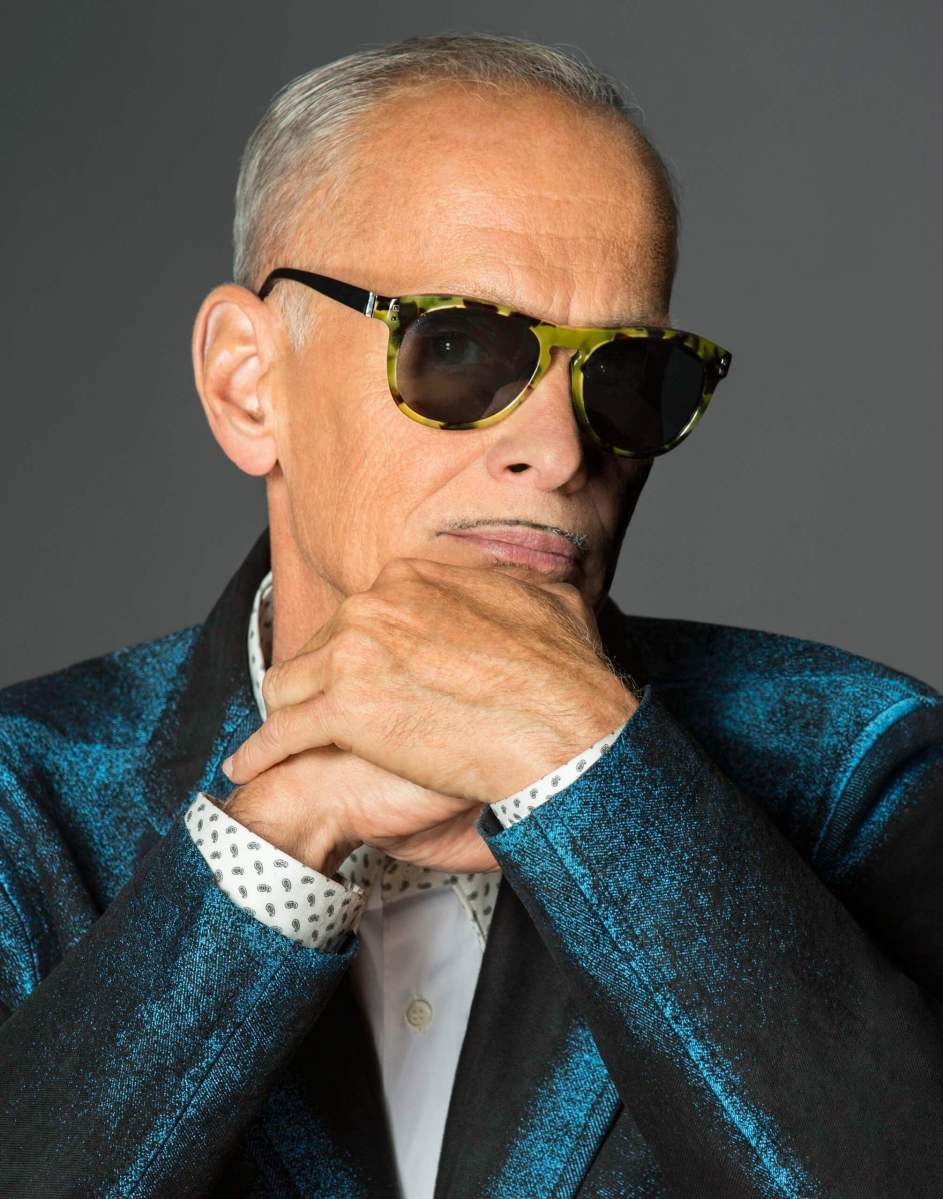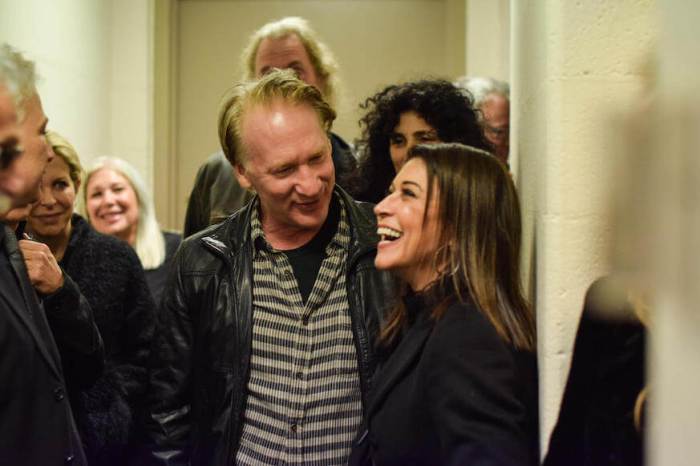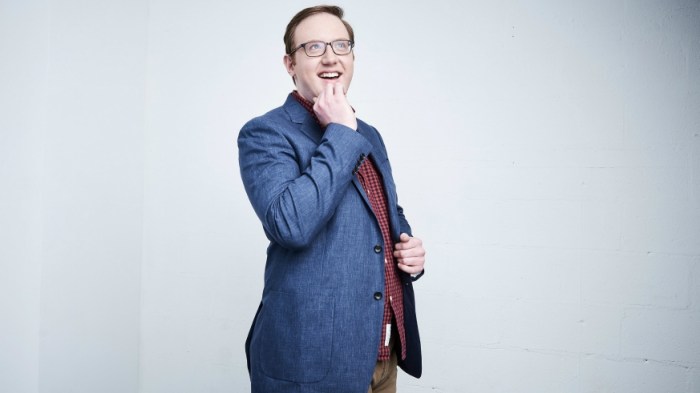Over his career, John Waters accomplished the seemingly impossible. The cult director and lo-fi shock artist with a focus on exaggerated filth and humor has, in time, gained a following so large that he’s become a reference point for the mainstream. With a cinematic resume that includes infamous works like “Pink Flamingos” and more accessible, but still edgy films such as “Hairspray,” “Cry Baby” and “Pecker,” John Waters’ films have made him a pioneer in well-crafted unsavory cinema. Granted, the public perception of filth has gotten filthier over the years, Waters has always been a reference point in the irreverent arts. In addition to his 16 films, Waters has written five books — the most recent was a New York Times Bestseller called “Carsick” that documents his cross-country hitchhiking trek from Maryland to California. Every December, Mr. Waters makes his rounds for “A John Waters Christmas” where he combines storytelling and stand-up comedy as a way for fans to brace and embrace the upcoming holiday season. How was your Thanksgiving?
I just got back from visiting my sister’s in Virginia. It was very nice. Then tomorrow I start 17 cities. So the calm before the… you and I may be the only ones working today. I’m getting ready and trying to get all Christmas-y even though my first [show] is in Southern California, which makes it all the more surreal. I love going to the Scientology Center on Hollywood Boulevard because they decorate with fake snow. What does Christmas mean to you and when did you decide to take it on? Some people consider that the Holy Grail of the entertainment industry. Well, I took it on the way Johnny Mathis took it on, only the opposite way. I wrote a book called “Crackpot” and I had a chapter “Why I love Christmas,” and I think it sort of started there. I mean I DO love Christmas. Now I love it because I have 17 jobs. I’m always like a drag queen on Halloween; if it’s Christmas, I’m working. I tour up until the night before I throw my annual Christmas Party, which I’ve had for 45 years. It’s a busy month and then I’m always shocked when I’m on the road when it really is Christmas. I think of Christmas now as my material. Then I think, ‘Oh I have to go shopping. You have to do it too,” So I give advice to everybody about how to get through it, the only person who I don’t give advice to it is me. But somehow I manage. Is there a fine line between reverence and irreverence?
My show is. My show is for people who love it and who hate it. I understand if I wasn’t Christian that I would be pissed off looking at a Nativity scene in front of the State Capitol. And I am against that. But I do go, like a crazy person goes to haunted houses on Halloween, I go to living creches because they are the scariest things in the world to me. I’m a connoisseur of bad human creches. Do you have fond memories of Christmas growing up? Was it a big deal for you?
Yes, it was a very big deal. Nothing bad ever happened on Christmas except a Christmas tree did fall on my grandmother. But that turned out to be good because I based a scene on it in “Female Trouble,” a very popular scene. My grandmother eventually thought it was funny that it left such a memory on me. People around the country tell me how that happened to them as well. It turns out that happens a lot. I didn’t realize this. I thought we were the only Christmas where the tree fell on my grandmother. But the tree falls over a lot. It’s a common trauma. Do you have any standout Christmas memories outside of the tree falling on your grandma?
For me it’s for when I sell out a show. I sold out the Sydney Opera House one year. When it comes to Christmas, when I was young, it had to do with photographs. If your parents kept photos of you—and during the radical ’60s nobody took pictures of their children because they hated how they looked. So I wish I had pictures of me in front of the stockings, which I did with my brothers and sisters when I looked like a yippy. They never took them then. I like those pictures in front of the mantle with the stocking. One year I got “The Genius of Ray Charles” album when I was really young and a hand puppet. So that was exciting. I used to get a carton of Kools in my stocking, which was exciting. My mother was very strict and that was thought of as normal. I wish I had a picture of that. It’s really like an art piece. Can you imagine that? Giving a child a cartoon of Kools for Christmas? She’d probably be arrested if she did that today. So you tour right up to Christmas and then have a proper celebration?
Yes I do. I have two sisters and a brother still living and we switch turns. It’s not my turn this year. I like hosting it. I cook a dinner and do the whole thing. Sadly, and you’d probably be shocked, but my Christmas can be very traditional. What are your thoughts on Christmas music? I know you curated a Christmas album, but do they ever get to you? Do you really like Christmas music?
Yeah, those have always been my favorite Christmas songs. “Happy Birthday Jesus,” “Santa Claus is a Black Man,” “Fat Daddy” by Fat Daddy who was a big black deejay in Baltimore when they first did Negro day and the show that I based “Hairspray” on. I still love Christmas songs. There aren’t enough of them. Why doesn’t Future Islands have one? Just think how great Sam Herring would be singing “O, Little Town of Bethlehem.” So you had a children’s Christmas movie called “Fruitcake” that you were going to do. Has that officially been abandoned?
No, I’m still pregnant with it for five years and I still don’t want an abortion. It’s the only time I’ve been pro-life.
Can you talk a little bit about it?
Oh, it’s SO boring. I’ve talked about it for five years, so it’s such old news. But I will talk about it if you want. It’s about a happy family of meat thieves in Baltimore on Christmas Eve when they’re out stealing. It’s a terribly wonderful children’s Christmas adventure. We’ll see; it could get made. Are you stepping away from movies in general? Is there a reason you haven’t been focusing on that medium?
Well, there’s one main reason and that is that no one is giving me the money to make them. It’s not about stepping away, it’s like unemployment, but they don’t have an unemployment line. I’ve always had many careers and I’ve done books, my last book was a best seller, all of my other books are still in print and I have a spoken word show the rest of the year called “John Water’s Filthy World” as well as my Christmas show. So I’m fine. If I never make another movie, I’ve got 16 of them, it’s not like I haven’t spoken. But I am still in the middle of trying to do a tv show and another movie. We’ll see. What did you learn from doing the hitchhiking book?
Well, I learned I’ll never be stuck because no matter what — if I don’t have any money, if I lose my passport, if I lose everything — I will be able to hitchhike. It reinforced everything I’ve ever believed, that most people are good people. I had a great time. It was more insane thinking up the fictional parts of the book about the worst that could happen and the best. It was definitely more extreme than the part of the book of what actually happened. The cliche of middle America was completely belied by all the people I met. Yes, they were middle-Americans, but the things they believed were sometimes unpredictable. Plus, the kind of people who pick up hitchhikers are a special breed of people. Did doing the hitchhiking book lead to any inspirations as to what you’re going to do next?
I joke in the book that next I’m going to take every drug I’ve ever taken in the order I took it. But I really don’t think that’ll happen. I really can’t imagine tripping at 70. Although, the idea itself is intriguing. I never had a bad experience with LSD so I don’t know why I would now. I always say I’m not going to tell young people that, but I just did. Does Baltimore still inspire you?
Oh, completely. I live a couple of places, but it’s more than ever my favorite. I get good ideas here. It’s the last city on the East Coast where it’s possible to be a bohemian anymore.
Are you still surprised as a cult director that the cult would be so big, that it’s even part of the mainstream repertoire?
It has made its way into the mainstream. I’m an insider now — the final irony in my life. Am I surprised? Yes. I’m surprised “Pink Flamingos” is shown on television. Yes, I’m surprised that I got a check for “Pink Flamingos” playing in Venezuela. What do they tell people, “This is capitalism and people eat shit there”?! It’s a hit in Venezuela, on television. I don’t understand that. But I’m happy. Do you have your own idea of what your legacy is?
My legacy? Just hope you have one, is what people say. History will be the judge of that. Who knows what will last. It’s amazing the things from when I was young that people don’t remember now. You don’t know what will happen. But by then I’ll be dead, so it doesn’t really matter. I’ve already bought my grave. It’s in the same graveyard as Divine. Mink bought one and Pat Moran. We’re all going to be buried there and it’s Disgraceland — my final dissipation.
On the road again with John Waters

Greg Gorman


















